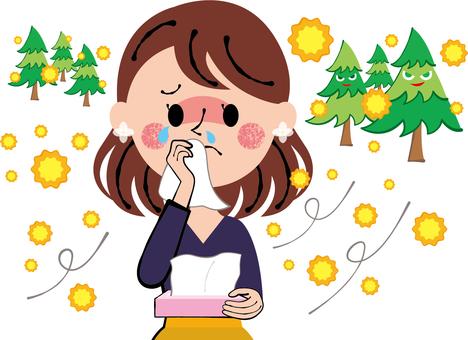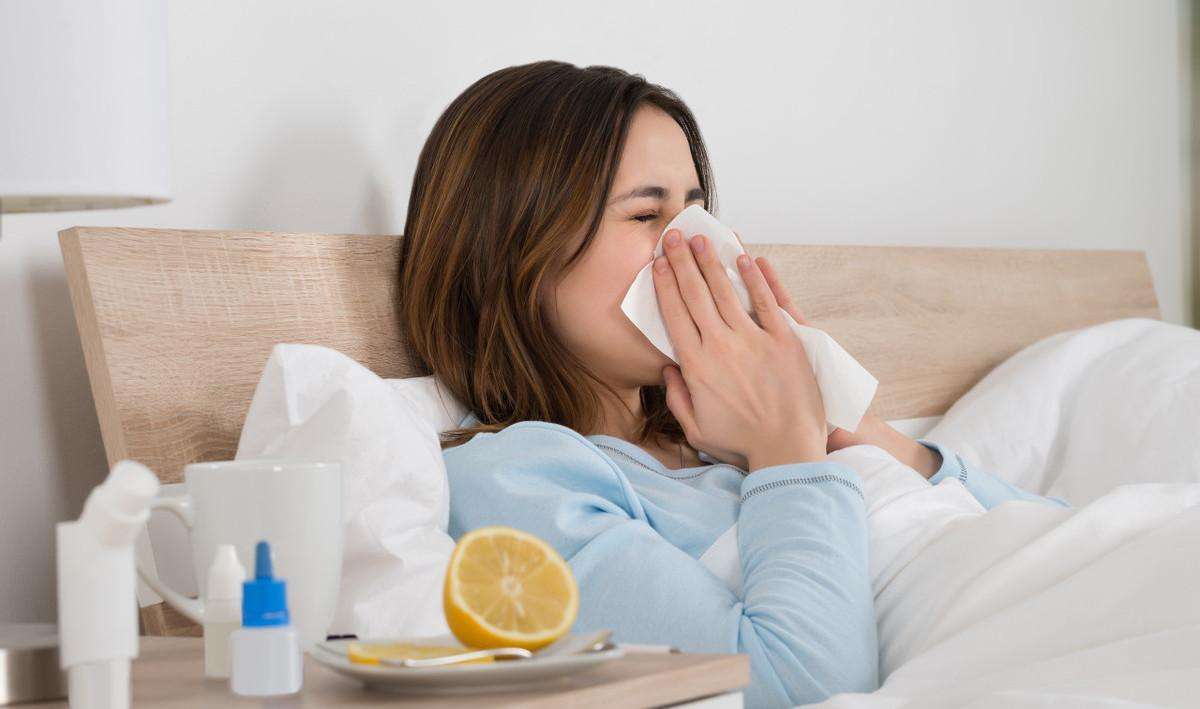There’s a difference between hay fever and the flu! There are tricks to deal with it ahead of time

The difference between hay fever and colds is that hay fever has no systemic symptoms and most of the symptoms start in the morning and will be relieved soon after medication is administered.Spring is in full bloom in March. With the arrival of spring comes an increase in pollen and other allergens, which can cause inconvenience to people with allergies when travelling and living. Medical experts advise that spring allergies can be effectively prevented and dealt with by taking health precautions, avoiding direct contact with allergens and choosing to use anti-allergy medication.
“The danger of hay fever should not be underestimated and its incidence is increasing every year.
Pollen is the male reproductive cell of various plants, and “hay fever” refers to a series of pathological and physiological processes that cause allergic reactions in humans after inhaling pollen.
According to Dr Wang Min, Chief Physician of the Department of Otorhinolaryngology at the hospital, hay fever, which is of public concern every spring, mostly manifests itself clinically as allergic rhinitis, which is characterised by itching in the nose, causing itchy sneezing, accompanied by severe nasal congestion and a large amount of clear water nasal discharge. Patients with eye allergies have itchy eyes, congested conjunctivae and, in some cases, itchy skin, which can lead to bronchial asthma in severe cases.
“Allergic rhinitis and other ‘hay fever’ diseases are common and prevalent and have a great impact on the quality of life of patients.” Wang Min said that most allergic rhinitis will be combined with conjunctivitis, which affects vision, and possibly with otitis media, leading to hearing loss, and even 30 to 40 per cent of patients will develop severe asthma. Clinical data shows that the incidence of allergic rhinitis in China is increasing year by year, with the prevalence rate reaching 40% in some areas.
“Hay fever has its own characteristics and is more prevalent in the north.
Some patients think they are more prone to allergies in the north. Wang Min said this is because the vegetation varies from region to region, so there are differences in allergies. The so-called “flowers” that cause “hay fever” are not “insect-borne flowers”, which are commonly thought of as beautiful and bright and rely on insects to spread pollen, but “wind-borne flowers”, which have bland flowers and rely on the wind to spread pollen. “Wind-borne flowers. In spring, pollen from trees such as cypress, poplar, willow and elm becomes more airborne and because these trees are more common in northern areas, hay fever is more prevalent in northern areas.
In addition to regional characteristics, hay fever is also seasonal, recurrent, fast-onset and familial. The peak of allergy coincides with the peak of pollen concentration in the air, and allergic symptoms occur every year with acute attacks. Patients often have a family history of allergy.
How to prevent and respond in advance?
According to experts at the CDC’s Institute of the Environment, allergens generally cause the onset of disease when they are exposed to them, so avoiding inhalation or contact with them is the key to preventing allergies in the spring. It is recommended that hay fever sufferers do the following during the pollen dispersal period, including avoiding allergen environments, reducing outdoor activities, wearing masks and goggles, washing hands and faces after going out, washing noses and eyes with dilute salt water if necessary, and replacing allergen-soaked clothing; reducing window opening time when the concentration of allergens is high outdoors. When the concentration of allergens is high outdoors, reduce the time of opening windows, clean or spray water to moisten indoor flotsam, use air purifiers, etc.
“How can hay fever be distinguished from a cold?
Although both have symptoms such as sneezing, runny nose and congestion, the difference between hay fever and colds is that hay fever has no systemic symptoms and mostly develops in the morning, with symptoms relieved quickly after medication. Experts say that patients can use anti-allergy medication two weeks in advance of the allergy season. If symptoms such as itchy skin, fever, cough and asthma occur due to allergies, you should leave the triggering environment quickly and take medication in a timely manner, or go to hospital if symptoms persist.



